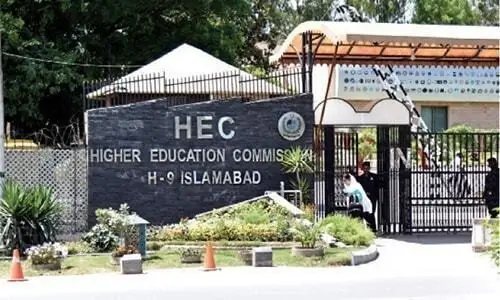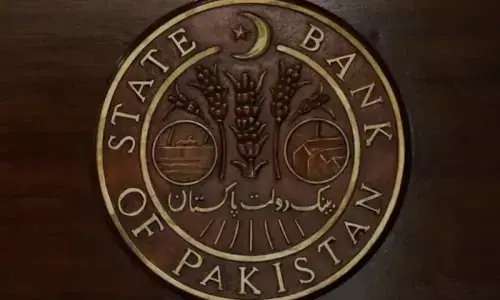Babar and Javaid Niazi are two brothers who love folk music their father Tufail Niazi passed down to them. The brothers have won laurels in both Pakistan and the international world. They received Pride of Performance in 2009, as well as the Sehgal Award from India, and many other national and international awards.
Born in Multan, Babar and Javaid studied up to matriculation and intermediate level respectively. Babar is the younger brother and Javaid is elder to him. The two brothers first joined television with Qaiser Farooq's program 'Kalian' on PTV. They were also the first child singers of PTV starting out in Khalil Ahmed's singing programme for children.
Their whole life has been devoted to folk music. They were students of their own father, who even during long drives would be teaching his sons the finer points of folk and classical music. Their other brother, Shahenshah, also sings but he does it on his own. Their uncle Qurban, brother of Tufail Niazi, is also into singing.
Asked about their own music, they smiled, “Naturally, we have a different style as compared to our father. No one can be like him. He was a great performer.” The brothers, who are on Facebook and YouTube, are popular ghazal singers also.
Tufail Niazi, whose most popular song in the 1960s was Mein Wanjara, mein waich da pir dawangan, Mein Wanjara had claimed that people belonging to the music world are soft-hearted, sensitive and gentle personalities. Babar says, “You'll never find such people getting involved in any kind of violence.” One can say this particularly for the kind of music that is played by them.
Like Ustad Fateh Ali Khan, they too feel that PTV used to do more for promotion of classical music and folk music than any other channel of today. But even that has stopped now, and music channels are promoting music which isn't even our own.
Babar feels that we have not been true to ourselves or our children by depriving them of their own heritage. They have a right to know what their own music is and what the true sound of their own land is.
The brothers feel very strongly about the way our people take other people's work and put it forward as their own, without giving credit to the original singer. Their father sang many hit songs which have been used by many composers in their music today. However, they firmly believe the original credit must at least be given.
Babar narrates the TV interview of Syed Noor in which he asked the host to play a song of his. “At least he could have said that it was originally sung by Tufail Niazi and that now he had got it recomposed. Many other musicians have also done this. In a country where every type of piracy is rampant, this is not surprising. But if we want to grow into a better nation, we have to shed such bad habits.”
Babar and Javaid Niazi have a couple of tapes and CDs of their own. The recording companies require an investment of 10 to 15 lakh rupees which is hard to put aside for such ventures, they say.
What is folk music? Javaid Niazi explains the beauty of folk music: “It is a way to bring classical music to the common man.” And then he broke into song...starting with a pure classical version of a Raag . “If I sing this to the common man, he will not understand the beauty of it. But if I relate it to his life, and sing it like this…”, putting words of life in the fields and the problems of growing the wheat crop, ….“now the farmer will be able to relate to these words. So, this is folk music!”
Belonging to the Kapurthala Gharana of India, they are true to their heritage in spirit and form. Babar and Javaid are happy with the response of the people who appreciate good music but they lament that the media is not giving our best to our people, or to our children.
All private channels are too commercialised, they say. They are not thinking of Hazrat Baba Buleh Shah, Khawaja Ghulam Farid, Shah Hussain, Mian Mohd Bukhsh, Sachal Sarmast, Waris Shah, Khushal Khan Khattak and many others like them. All our Sufis are now being appreciated by people in Norway, Germany and in the US.
“We went to Smithsonian Museum in the US, where we were the second Pakistani singers to perform after Nusrat Fateh Ali. There was a sound engineer there who kept requesting for Heer . Our programme was ending and he asked twice. Then I sang a portion of Heer , and winded up. After the show, when we were interacting with the people, he came up to us and said, “You sang Heer nicely but why did you cut it short?”
“We were surprised that he knew so much about our music. Then we found out that he had been studying these subjects and knew more about our heritage than our young generation. What type of complex do we have that we are not giving our children our Sufi music, while other people are studying it abroad? It's so sad that hardly any channel is working in this field. Previously, PTV used to give a slot - at 12 am! We have ourselves buried our classical music.”
“It is the same with our instruments. These beautiful sounds which hailed from our land are being silenced completely. Our Sarangi , Tabla , Sitar , Dilruba , Sarod , Santoor are instruments which are dying.
The amazing trained voices of Babar and Javaid deserve to be valued. Just as they had connected their classical songs to the lives of the farmers, in the same way, they can also relate their lyrics to the lives of the present day audience living both in the urban and rural areas.































